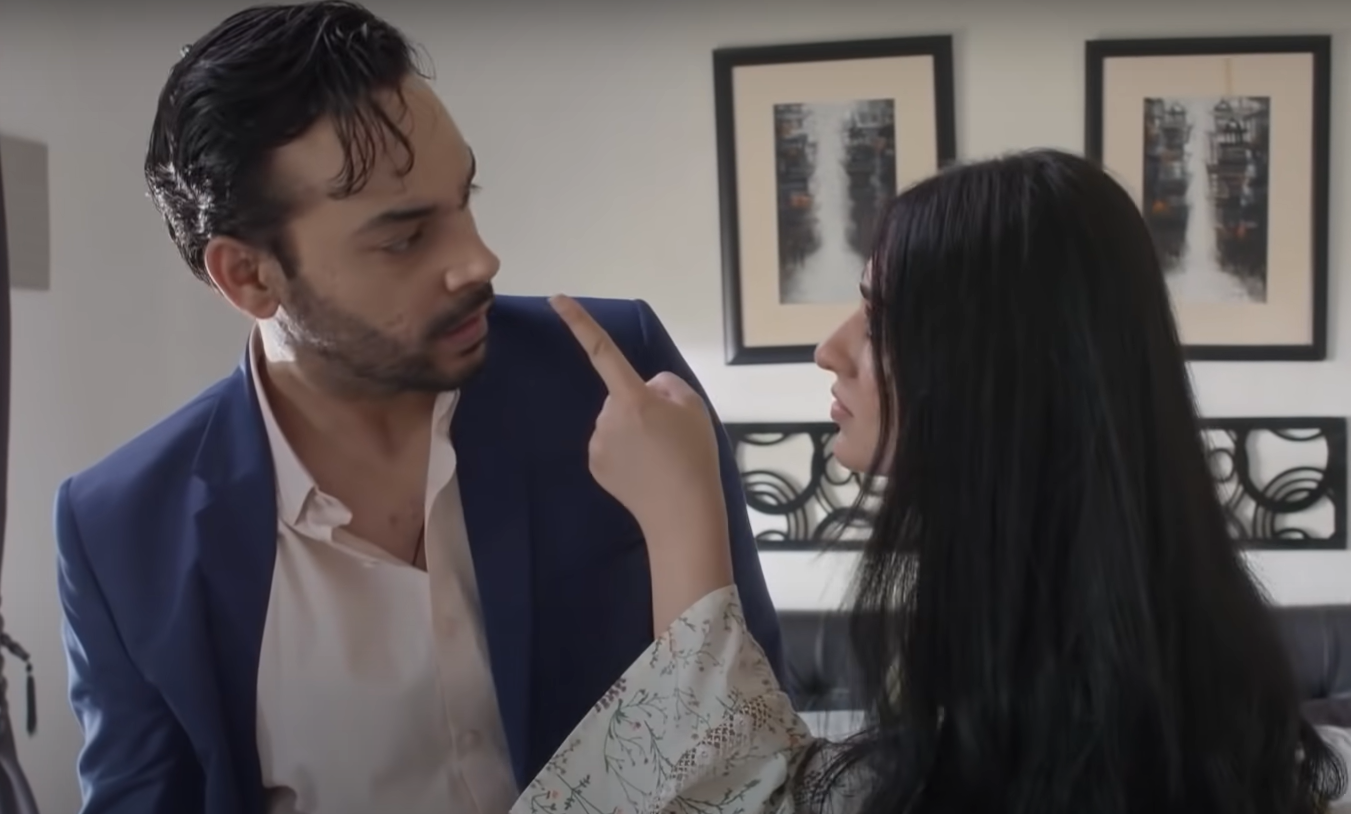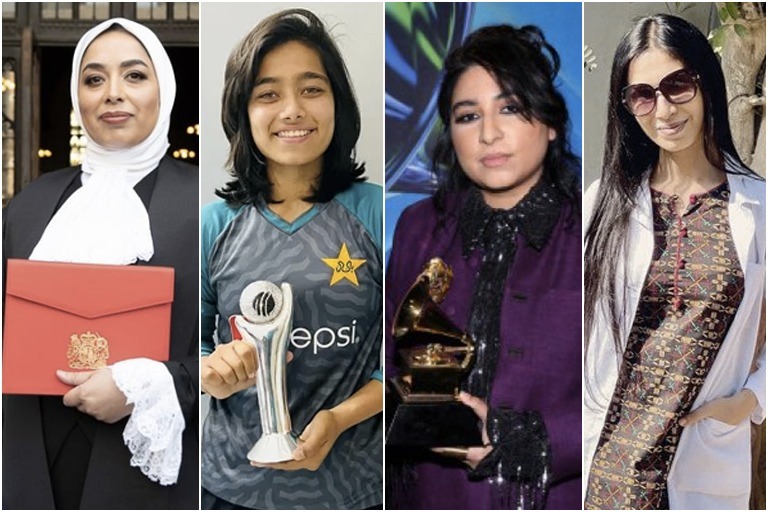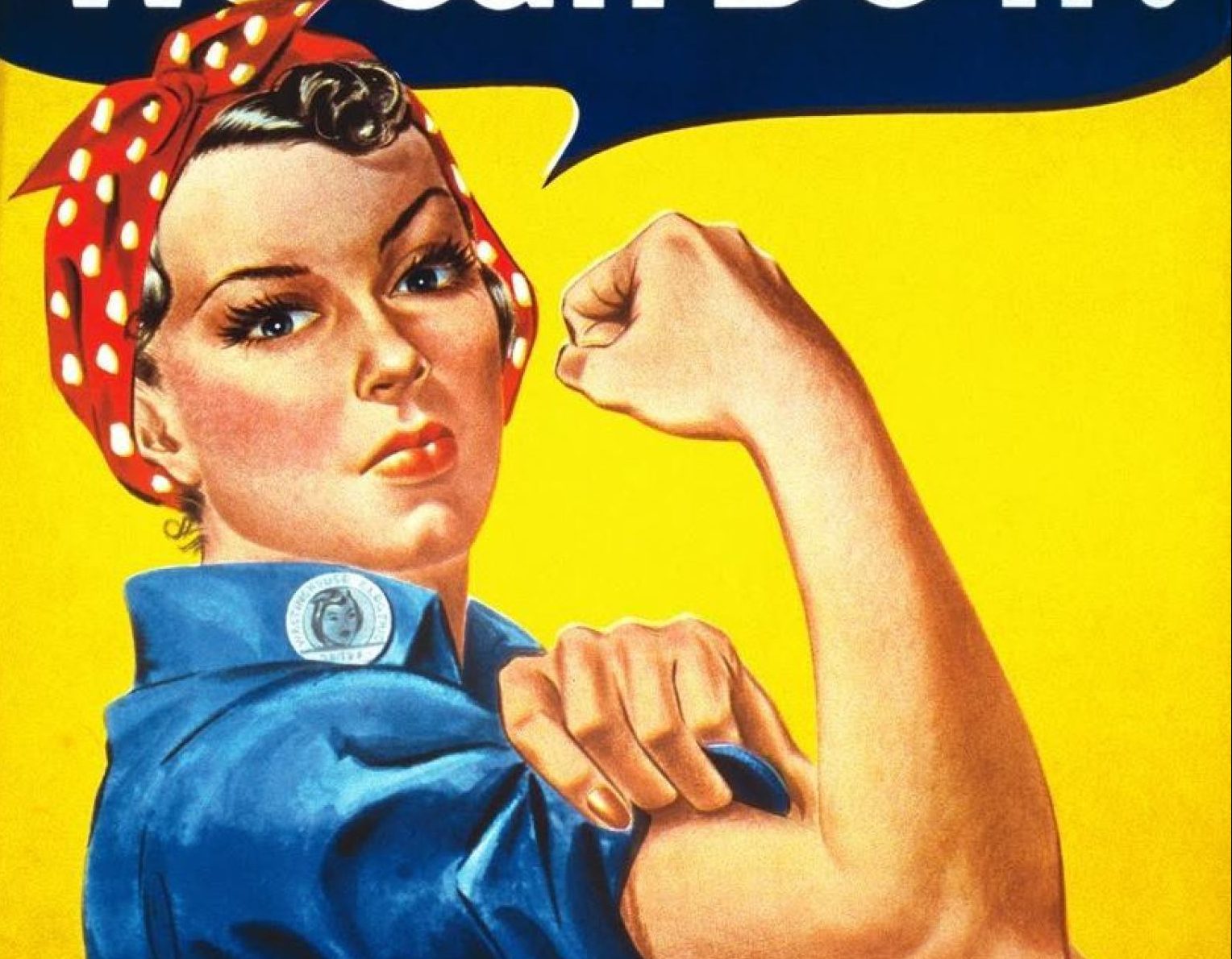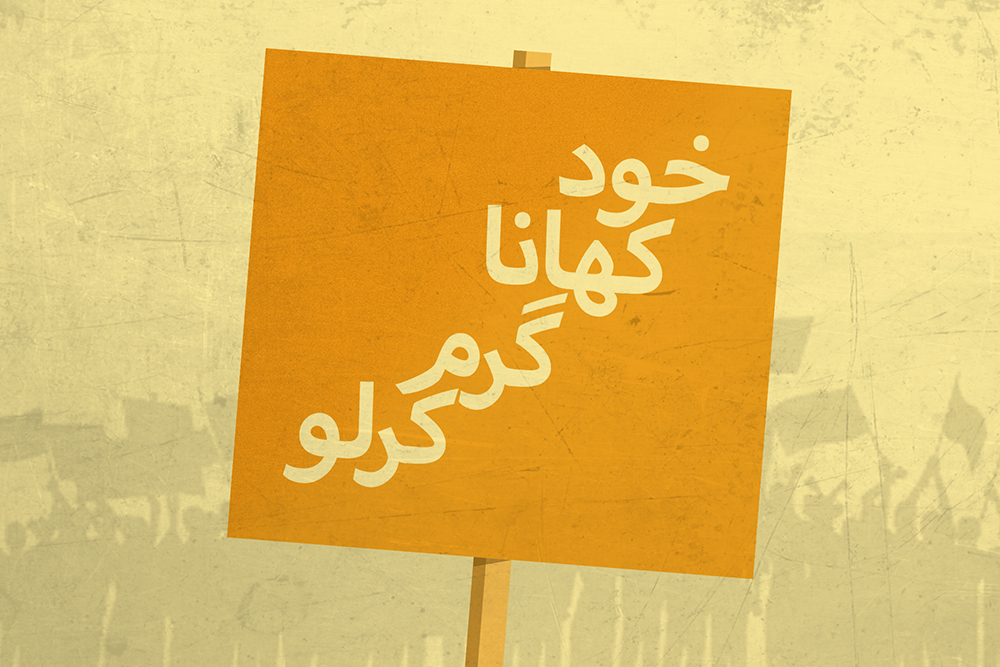KARACHI: Drama serial Laapata recently gained a lot of traction as it aimed to change the narrative around domestic violence. The scene that became the talk of the town featured Gohar Rasheed as the husband Daniyal and Sarah Khan as his wife, Falak. The former slaps his wife as is common in many of our dramas, but to the audience’s surprise, Falak slaps Daniyal back and warns him to never raise his hand at her again. In what ended up being known as the ‘thappar scene’, many saw Falak as an example of the kind of female characters television needs to show more of. Falak became a symbol of women who choose not to be on the receiving end of abuse. While Falak’s representation in the drama is worth commending, Gohar Rasheed’s reaction to the particular scene was not entirely sound.
View this post on Instagram
In a social media post in which Gohar Rasheed reveals why he chose to play the role of Daniyal since he otherwise ‘hates the display of physical abuse on television,’ he applauded Falak’s character for her courage and paints her as a symbol of strength. However, in the same line, Rasheed voices that “oppression is a choice.” Apparently, Daniyal being slapped back by his wife is a ‘proof’ of Rasheed’s opinion.
Now, the actor’s intention might be right and he probably does condemn abuse in all forms but Gohar Rasheed’s statement regarding oppression being a choice is just another example of poor choice of words by our celebrities. Rasheed is not only a man and hence, benefits from his gender in our country, he is also a man with considerable amount of influence and privilege.
For Rasheed, domestic violence may have only been a scenario to act out in a drama but for thousands of Pakistani women (and women around the world), it is a lived reality. Sure, Falak slapping Daniyal feels like an empowered move for the woman but in real life, women live with a constant sense of fear. Sometimes women are physically weaker than a man and many a times, they are just paralyzed by fear. Even if a woman manages to hit her husband or any man back, what guarantee is there that he would not take the fight one step forward? The lives of survivors of domestic abuse are not scripted scenes where the antagonist stops after one response from the protagonist.
Sadly, our society instills another fear in women which is considered to be worse than a physically or emotionally abused woman. Divorce. Divorce is a huge taboo in our society and is often used as a weapon by men to threaten their wives. “Teen alfaz bol keh tumko azaad kar dunga” is no less than a death threat for women who have nowhere to go or whose families will never accept them after being divorced. These women stay in abusive marriages not because they can’t or don’t want to fight back, but because they are helpless at the hands of our society. These women do not ‘choose’ oppression, instead they have no choice at all.
Even if we take an example from television, Safia from ongoing drama serial Aakhir Kab Tak symbolizes how often oppression is ingrained, how it can take down entire families, and how it can take years of unlearning. Safia stays quiet for the most part of the drama, yes but would we say she ‘chooses’ oppression? Most definitely not. When she ultimately does stand up for herself and her daughters, does she ‘choose’ violence? Absolutely not. Is there one correct way of taking a stand after going through years of abuse? There isn’t.
Here’s the harm that careless statements like ‘oppression is a choice’ really do. They blame women. In a country which thrives on victim blaming and where women are questioned every living moment, telling them that they choose oppression is also victim blaming. Because we are not trying to empathize with the survivors and victims, we are trying to tell them that there is a way to end their suffering and they chose not to follow that path.
View this post on Instagram
Perhaps Gohar Rasheed really did not mean to blame women and maybe with Daniyal’s character, he really did think he was doing something impactful. But then why did violence have to be involved in the drama at all? Are humans not empowered until they hurt someone else? Usman Mukhtar in a recent interview condemned his character Aswad and shared how he was willing to let go of the character since their morals did not match. Why can’t more men with a huge following and influence ‘choose’ to change the narrative? Why can’t men put in more effort into bringing about a positive change in our society?
In a country where women have so little agency in general, why must we teach them that the one time they do have a choice is when they are being abused?













